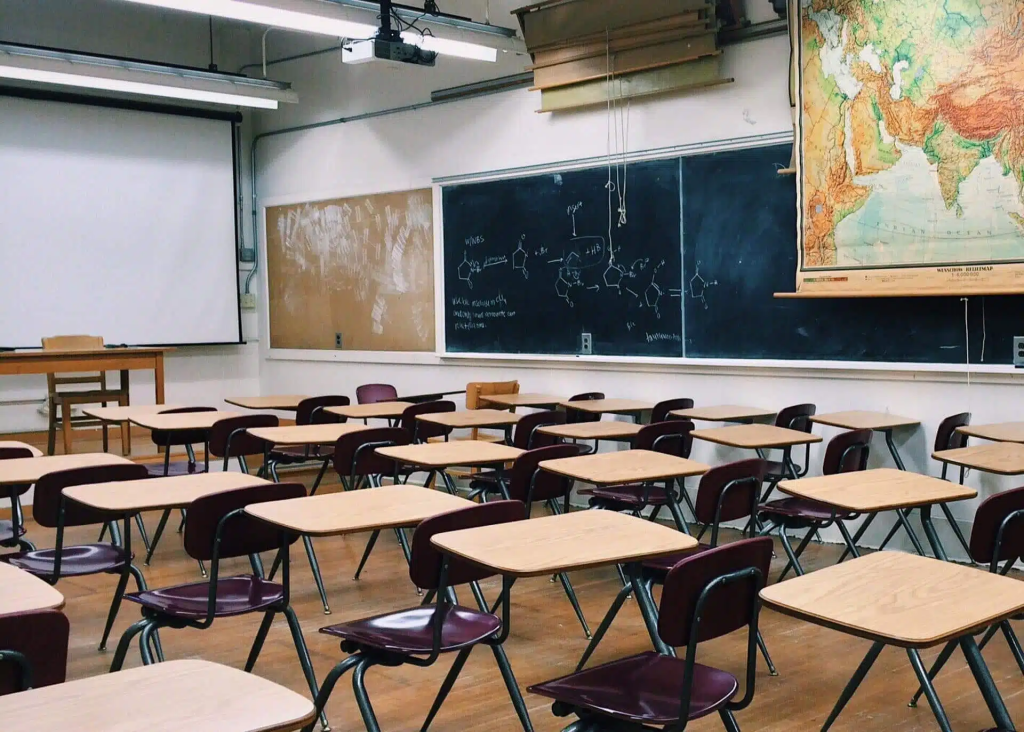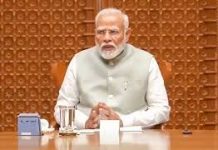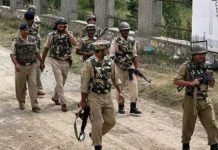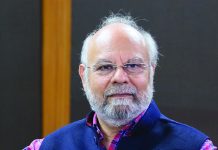Across India, dummy schools thrive in collusion with coaching centres, illegally allowing students to skip regular classes to focus exclusively on private coaching for competitive exams like NEET/JEE. all under the nose of the CBSE. A report by Tehelka SIT

Top coaching institutes in India have been caught on Tehelka’s camera confessing that they guide interested students and their parents to gain admission to “dummy schools.” One of these institutes, it may be mentioned, became a household name in India after a web series on the OTT platform, Amazon Prime. These dummy schools, also known as non-attending schools, allow students to skip regular classes and focus solely on coaching for competitive exams like NEET/JEE.
The nexus between these coaching centres and dummy schools runs deep. Parents and students who approach these institutes for NEET/JEE coaching, along with requests for admission to dummy schools, are provided with middlemen by the institutes. These brokers visit the coaching centres weekly, armed with lists of CBSE-affiliated dummy schools in Delhi-NCR where interested students can be admitted. In return, the middlemen pay commissions to the coaching centres for securing candidates’ admission to dummy schools.

The admission process for dummy schools occurs only in Class XI. Parents and students openly express their preference for dummy schools, enrolling their children in selected CBSE schools through the coaching centres, where they would not be required to attend classes. Although they pay monthly fees, these students do not attend regular school classes; instead, they focus on what is taught at the coaching centres. Remarkably, Tehelka’s investigation has revealed that the attendance of these non-attending students is managed by the dummy schools in exchange for regular monthly fees, with students only required to appear for the final exams.
Educators argue that dummy schools are undermining the schooling system in the country. They urge CBSE to inspect schools and identify those that are hand in glove with private coaching institutions. Some warn that if these unfair practices go unchecked, more schools will follow suit, leading to a decline in holistic learning. One Public Interest Litigation (PIL) suggests that dummy schools are also used to enrol students from other states in Delhi schools, making them eligible for the 85 percent quota in Delhi University colleges. Others prefer dummy schools for exam preparation as it is less tiring than attending both school and coaching centre each day.

In September last year, the Delhi High Court issued notices to the Delhi Government and the Central Board of Secondary Education (CBSE) in response to a plea seeking action against CBSE-affiliated schools in Delhi. These schools were allegedly involved in the illegal practice of offering “dummy schooling” to Class 11 and 12 students. Despite CBSE disaffiliating 20 schools (including five in Delhi) for enrolling dummy students, the dummy school business continues to thrive. This pan-India business has been running for over a decade.

To expose this thriving business, Tehelka conducted an eagerly awaited investigation into dummy schools, which operate in conjunction with coaching institutions. We approached several prominent institutes in Delhi and Noida. Remarkably, these institutes agreed to our team’s request for “our ward’s” admission for NEET/JEE preparation and assured us that they would also facilitate the child’s admission to a CBSE-affiliated dummy school in Delhi.

“We are also in the dummy business. Dummy schools are a very profitable business for coaching institutes. We receive 15-20k as commission for each admission to a dummy school. This commission comes from the middleman, who coordinates between the dummy school and the coaching centres. Dummy schools generate significant revenue for the coaching industry. Currently, there are 10-12 students in our institute enrolled in dummy schools. For these dummy students, we conduct classes in the evening, not in the morning,” says Rati Chauhan, a manager at one of these institutes.
We met Rati at the institute’s Nirman Vihar branch in East Delhi, posing as parents seeking admission for their child in both NEET/JEE preparation and a dummy school. Rati agreed to admit our child for NEET/JEE preparation and promised to assist with dummy school admission, describing the dummy school business as highly lucrative for the coaching centre. According to Rati, the institute currently has 10-12 students enrolled in dummy schools. It emerges from the conversation that in the murky world of dummy schools, both students and institutions are caught in a web of deceit. The connections between middlemen and schools reveal a profit-driven scheme that thrives on secrecy and manipulation.
Rati- Hum bhi dummy karate hain, dummy hum bhi karate hain..but hum promote nahi karate.. kyunki baccha kharab ho jata hai.
Rati (continues)- Fayda hai usmein.
Reporter- Kya fayda hai mam?
Rati- Aap jab bhi cheque denge.. wo school ke naam ka cheque denge, jitni unki fees hogi. Hamara 15 thousand ya 20 thousand mediator ka hota hai.
Reporter- Accha school aapko commission dega?
Rati- School nahi jo mediator hoga, jiske through hum karayenge, hamare beech mein do source bethey hain school ke jo..mediators.
Reporter- Middleman?
Rati- Jo public dealings kartey hain..jaise aap school jaatey hain coordinator hota hai, aap seedha principal se nahi mil saktey, you have to meet coordinator. Similarly hame bhi school se milne ke liye coordinator ko approach karna padta hai.
Rati- Ussey miltey hain wo sara setup school se karwata hai. And then institute ko bahut fayde hain dummy se, Paisa bahut acha aata hai dummy se..wo costly bhi hota hai.
Reporter- Abhi kitne bacchey honge Dummy mein.?
Rati- Hum dummy bhi detey hain toh evening mein, morning mein koi dummy classes nahi dengey.. evening hi dengey same.
Reporter- Abhi kitne bacche hain ?
Rati- Aap manogey nahi!.. kareeb 10-12 bacche hain abhi.
[The conversation unveils the hidden operations behind dummy schools, where mediators facilitate lucrative deals between parents and institutions. This shows how financial incentives can corrupt educational values.]
“We have a list of dummy schools tied up with coaching centres, all CBSE-affiliated and located in Shahdara, Loni, and Rohini. Students don’t need to attend school even once in two years, which is why they prefer dummy schools,” Rati told our undercover reporter. In the following revealing exchange, the shadowy world of dummy schools is laid bare, exposing how deeply entrenched these institutions are in the Indian education system. It highlights the alarming ease with which students bypass traditional schooling.
Reporter- Aur agar hum dummy ke liye jaatey hain next year to aapke kaun kaun se school hain dummy wala
Rati- Wo sab mein aapko listing kar dungi.
Reporter- Sab CBSE ke hain ?
Rati- CBSE affiliated hi hotey hain.. government ka nahi hota hai.
Reporter- Aas pass mil jayenge schools kahin.?
Rati- Sir ye mushkil hota hai, shahdara mein ek hai, Loni ke pass hai, phir Rohini mein hain 2-3 schools, kyunki baccho ko jana to hota nahi, poore 2 saal mein ek baar bhi nahi jaata.
Reporter- Ek baar bhi nahi ?
Rati- Kuch nahi, tabhi to baccha leta hai.
[The conversation highlights the long-standing practice of dummy schools, showing how they allow students to skip regular attendance entirely. It shows that this entrenched system prioritizes convenience over actual education, raising serious ethical concerns.]
“The dummy school concept in fact is quite old in India. When I finished Class 12 in 2013 from Deoghar, Jharkhand, students in my area were already using dummy schools and coaching from Delhi,” revealed Rati. The facts revealed by Rati here underscores thatthe concept of dummy schools, though illegal and unethical, has deep-rooted origins. This conversation delves into its history, revealing how it quietly existed for over a decade, influencing even the educational landscape of smaller states like Jharkhand.
Reporter- Ye concept shuru kyun hua mam?
Rati- Concept, ye mere time ka concept hai, bahut purana, jab maine 12th kiya hai, in 2013 I did twelth.
Reporter- Itna purana hai ye.?
Rati- I am talking about myself.
Reporter- I am talking about dummy.
Rati- Bahut purana hai… mein small state se hoon.. Jharkhand se, us samay mere friends.. 2013 mein.. they were doing coaching in Delhi.
Reporter- 11 years pehle ki baat hai! Hamne to abhi suna hai.
Rati- Yes Yes bahut purana hai sir.. mere friends Delhi mein aa kar, they were doing coaching in Nairaina and all.. wahan bhi Deoghar mein jahan se mein hoon, wahan bhi sab ne chotey chotey schools banaye hain, sabki shakalein dikhti hain jab board exam dena hota hai!
[The conversation highlights that the concept of dummy schools is far from new, with roots going back over a decade. The upshot is that this practice has long been a quiet, widespread reality in various regions lof the country.]
After Rati, we met Rabia Sadaf at another prominent institute’s office with a fake deal that we wanted to admit our child for NEET coaching in their institute and also want to admit him in dummy school. “Yes, we have a tie-up with dummy schools, as many students ask for admission. Most students in our institute are enrolled in dummy schools, all CBSE-affiliated and based in Delhi and Noida. A broker regularly visits our coaching centre to facilitate these admissions,” revealed Rabia Sadaf, a counsellor at a well-known coaching institute’s Sector 18 branch in Noida, to our undercover reporter. Rabia assured us that she will provide all possible help to get our ward admitted in dummy school. The dialogue unveils the practical aspects of navigating this shadowy educational network. From non-attending schools to crucial references, it sheds light on how these institutions operate and provide alternatives for students.
Reporter- Prateek ji se baat hui thi meri 11the mein admission ke liye, non attending school.
Rabia- To wo school ja rahe hain na..?
Reporter- He will leave the school.
Rabia- Accha he will be leaving the school..haan to schooling ke liye hum karwa denge ..haan dummy schools se tie up hai. Wo hum karwa denge agar aapko lena hai.
Reporter- Mujhe Prateek ji ne bataya hum reference de denge aapko..unko dummy schools kehtey hain.
Rabia- Haan dummy schools.
Reporter- Schools kaun kaun se hain ?
Rabia- Wo to mere pass nahi hain ek mam aati hain.. unse poochna padega.
Reporter- Kaunsi mam hain?
Rabia- Unhi ke end se hain jo hamari mam hain reference wali..hamare pass bacche aate hain to unko provide karna hi padta hai..
Reporter- Hain aapke pass bacche?
Rabia- Haan bahut se bacche..mostly to non-attending wale hi hote hain.
Reporter- Mostly non-attending wale hain.. dummy wale?
Rabia- Haan ab baccho ko lagta hai school mein time zyada occupied ho raha hai.
Reporter- Prateek Chaudhary kya hain?
Rabia- Wo bhi counsellor hai.
Reporter- Mam ye non-attending schools Noida ke hi hain ya Delhi ke bhi hain.?
Rabia- Dono hi rehtey hain mam, preference rahega aapka,. Apko agar benefit mil raha hai to mil jata hai Delhi ka bhi.. wo phone utha nahi rahi hain, mein number de dungi, aap baat kar lena.
Reporter- Aapke reference se baat kar loon ?
Rabia- haan.
Reporter- Ye dummy schools CBSE rahenge ?
Rabia- Haan haan, aur agar hum aapko reference de rahe hain to definitely admission hoga.
[The conversation delves into the realm of ‘dummy schools,’ exposing their nexus with private coaching centres. Rabia’s insights underscore how requirement of mandatory minimum attendance in schools runs into coaching priorities.]
“You’ll pay Rs 1.20 to 1.30 lakh for two years of dummy school fees. Your attendance will be managed, and you won’t need to attend school in Class 11. In Class 12, you’ll only go for practicals and the final exam. You’ll be promoted without exams from Class 11 to 12. Just buy a school uniform from the place we specify for the few times you need to attend,” confessed Rabia. The following exchange reveals the practicalities of enrolling in a dummy school, including fees, attendance requirements, and exam protocols. It highlights how these institutions offer a streamlined, albeit unconventional, educational pathway for students.
Reporter- Iska procedure kya hoga ?
Rabia- Unka koi 1.20 to 1.30 lakh ke beech ka fees hoga…kaunsa class rahega aapka ?
Reporter- 11th, 12th.
Rabia- Haan 1.20 rahega.
Rabia- I lakh 20 hazar..dono saal ka..ismein aapko school nahi jana padega, attendance manage hoga.11 th mein aapko jana nahi padega, 12th mein aapke practicals honge..file wagera submit karna hoga, number bhi acche de detey hain ye practicals mein.
Rabia- Uniform kuch lena padega, exams dene jana padega school…wo bhi aapko bata denge kahan se collect karna hai…
Reporter- First term, second term sab dene jana padega ?
Rabia- Nahi 11th mein to koi exam hi nahi dena padega, 12th mein sirf boards ke liye jana padega.
Reporter- Ist term, second term, kuch nahi hoga sirf board mein jana hoga
Rabia- Haan sirf board mein.
Reporter- 11th mein final exam mein nahi jana hoga ?
Rabia- Nahi.
Reporter- Pass kaise karegi phir?
Rabia- Entry rehta hai usmein sab detail rehti hai.
Reporter- Accha..koi issue nahi hai ?
Rabia- Kahin par bhi jaatey ho dummy ke liye, aisa hi process hota hai.
[In this intriguing dialogue, Rabia unveils the world of ‘dummy schools’—a parallel educational system that caters to NEET and JEE aspirants. These schools offer flexible attendance, allowing students to focus on entrance exams. As we delve into the details, we learn that while students focus on exam preparation, formal schooling goes for a toss.]
“Rest assured, your ward will be promoted to class 12th without taking any exam. I can assure you that there will be no hassle. Those running these dummy school are experienced people as they have been doing it for years,” Rabia tried to reassure us. This conversation uncovers the ubiquity and practicality of dummy schools, detailing how they manage practicals and exams with minimal attendance. Rabia’s experience reveals that this system is a well-established, nationwide phenomenon.]
Rabia- Maine bhi apne time par jab kiya tha to hame bhi exam dene jana padta tha.
Rabia (continues)- Sirf practicals mein jana hota hai, de denge kya banana hai, 12th mein sirf jana hoga exam ke liye..wo to paisa aapse isi baat ka to le rahe hain.
Reporter- Accha 11th, 12th aapne bhi dummy se ki hai…?
Rabia- Ji sir.
Reporter- Ismein koi issue to nahi hai bacche ke liye ?
Rabia-No sir.
Reporter-Nahi aisa na ho CBSE ki taraf se kuch jaanch ho jaye..?
Rabia- Waise to kuch bhi kabhi bhi ho sakta hai but kafi time ye log yahi kaam kar rahe hain, inka business hi ye hai…aap to phir bhi end user ho, kuch hoga to sabse pehle to humpar hoga.
Reporter- Aap Bihar se ho aur aapne bhi dummy school se padha hai, iska matlab ye to All india mein hota hai..?
Rabia- Haan haan exactly. Aisa nahi hai ki sirf yahan par hota hai ye sab jagah hota hai.
Reporter- We are surprised..hum logon ko abhi tak dummy school ke bare mein pata hi nahi tha…wo to mere bete ne bataya ki bahut sare bacche school nahi aatey hain..yahan institute mein hain aapke dummy school wale bacchey ?
Rabia- Haan haan.bahut se admissions hote hain.
[Dummy schools, used widely across India, offer a feasible solution for students preparing for competitive exams with minimal attendance. The upshot is that while some uncertainties exist, this system remains a popular and well-established option for many.]
“The coaching centre will get you enrolled in a dummy school. Parents who are aware prefer dummy schools because, ultimately, students have to appear for competitive exams. There’s no point in studying the same thing at both school and the coaching institute, so they choose dummy schools,” says Anup Kumar Yadav, an administrator at a prominent institute in Preet Vihar, East Delhi. This was the third coaching institute Tehelka’s undercover team visited, posing as parents seeking admission for their child in a dummy school. In the following discussion, Anup explains the concept of ‘dummy schools’—a parallel system where students focus on competitive exam preparation. Anup explains the strategic use of dummy schools for students juggling multiple academic commitments. He is at pains to explain how these institutions allow students to concentrate on their goals without the distractions of regular schooling.
Reporter – Acha ek mein kafi bacho ko dekh raha hoon, jaise tehth ke baad ek system aur bhi chal raha hai,hum log ko jankari nahi hai..aapse pata karna chah raha hoon since you are from this field. Ki 11th mein baccha gaya wo school nahi jata..
Anup- Dummy school
Reporter- Dummy school ye kya hai..-?
Anup- Sir classes hain, 11th, 12th mein hai kya, wahi aapka NEET mein hai wahi JEE mein..
Anup (continues)- Ab jab hum bhi aapko wahi padha rahe hain wahi cheez aap school mein padh rahe ho, dono jagah par alag alag aapko workout karna hai..aapka focus nahi ho pata hai..
Anup (continues)- Jo parents aware hotey hai wo kya kartey hain beta ek hi jagah focus karo, aap 11 th 12 apna dummy school se karo..
Anup (continues)- Competitive ki taiyari coaching se karo, aapko end of the day kya chahiye, competition level par hi bethna hai, jab syllabus aapka clear hota hai, exam dene aaye sirf ek certification ke liye, aakhir kar kya karna hai competition dena hai. Focus rahe..isliye dummy school prefer kartey hain.
Reporter- Wo Dummy school CBSE affiliated hotey hain ?
Anup- Obviously
Reporter- Hota hai..school mein enroll kaun karayega..coaching centre?
Anup- Haan
[As Anup highlights the benefits of dummy schools, which allow students to focus solely on their studies without regular school attendance to prepare for competitive exams, he overlooks the positive impact that a well-rounded education has on a child’s overall development. While academic excellence is crucial, schooling encompasses much more than just academics.]
“The dummy school manages students’ attendance as per CBSE requirement. We have a team of people who handle dummy school admissions for the children. After passing Class 10, your ward can get into a dummy school through us,” said Anup. Now, Anup outlines how dummy schools can facilitate students’ attendance management, especially after class 10th. He explains the role of his team in coordinating with these schools to ensure compliance with CBSE requirements. This system provides a streamlined pathway for students to focus on their competitive exams.
Reporter- Kyunki CBSE to mangega attendance jab bacha board dega?
Anup- Wo attendance manage karte hain..
Reporter- Kuch schools aapki list mein hain.. ya sab schools kartey hain..?
Anup- Nahi ..hamari team coordinate karti hai, bata degi.
Reporter- Kya hum apne bacchey ka 10th clear kar leta hai to aapke saath ye system karwa saktey hain..?
Anup- Haan bilkul karwa saktey hai..abhi 10th par focus karne dijiye, after that we will sit and discuss.
[The conversation highlights how this contrived education system provides a streamlined pathway for students to focus on their competitive exams, while sidestepping the legal requirement of minimum school attendance as mandated by the CBSE.]
“It’s a win-win for Dummy schools. First, they get students automatically. Second, they don’t have the pressure of managing students since they are non-attending. Third, the school can employ 10 teachers instead of 20,” revealed Anup. In the complex world of educational institutions, these conversations shed light on grassroot realities. As Anup discusses the nuanced benefits of dummy schools, the exchange offers a candid look at the evolving landscape of education.
Reporter- Accha sir ye ismein school ka kya fayda hai, benefit hai..?
Anup- School ka ye fayda hai: waise wo baccho ke liye bhatkege, aise bacche mil rahe hain..
Reporter- Baccho ka pressure kam hoga school par mujhe aisa laga..?
Anup- Baccho ke pressure ke elawa teachers ka bhi..jahan unhe 20 teachers chahiye padhane ko wahan 10 mein hi kaam chal jayega..
[Anup explains how dummy admissions ease the burden on schools by reducing the need to hire more teachers. This exchange provides a candid look at the evolving educational landscape against the backdrop of disproportionate stress on competitive exams.]
“You will get a reputable school as a dummy through us. They manage attendance and expect students to focus on preparing for competitive exams at coaching centres. We have schools in Anand Vihar and Karkardooma in East Delhi.” In a candid exchange, Anup now discusses the nuances of finding reputable schools through his network. The conversation highlights how certain institutions, despite appearing conventional, are willing to bend the rules to manage student attendance in their zeal to support competitive exam preparation.
Reporter- Aisey acchey school mil jayenge aapke through.?
Anup- Obviously sir..bahut schools hain, XXXXX public school hai Karkardooma mein..
Reporter- XXXX..CBSE board hai..?
Anup- XXXX wo bhi accha school hai, Anand Vihar mein hai, XXXX wo bhi accha school hai.
Reporter- Vo bhi dummy karatey hain..?
Anup- Proper schools hi hotey hain par wo manage kartey hain…attendence, koi baat nahi, nahi aa raha aap taiyari karo competitive exams ki..simple.
Reporter- aapke panel mein bhi hain.. ho jayega..
Anup- haan..
[Anup’s revelation underscores the multifaceted nature of educational institutions, where ‘operational flexibility’ can coexist with quality education.]
The Tehelka investigation has unveiled a troubling nexus between coaching institutes and dummy schools, exposing a covert network where coaching centres act as intermediaries. These centres not only broker arrangements between students and dummy schools through middlemen but also profit from this dubious tie-up.
Schools benefit by making extra revenue without the overheads of additional teachers or physical space, while coaching centres secure additional income from facilitating these transactions and enrolling students. This mutually beneficial scheme underscores a deeply ingrained issue within the educational system.
It is high time for the CBSE to take decisive action to address this open abuse of the system and restore integrity to the education sector. The revelation calls for a thorough overhaul and stringent regulations to ensure that educational institutions serve their intended purpose without compromising on ethical standards.












